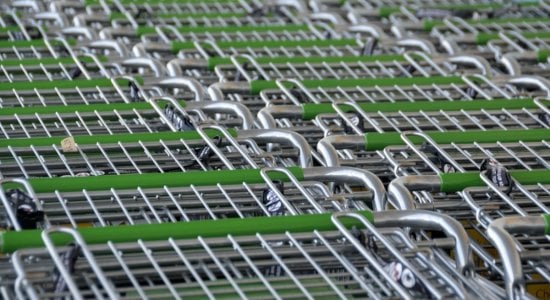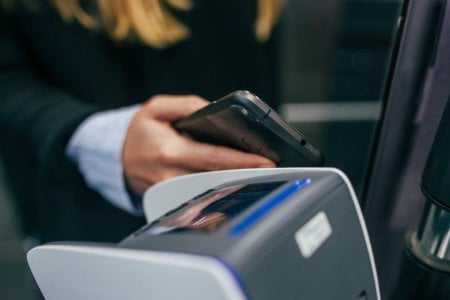Overseas supermarkets ditched self-checkouts—should Coles, Woolworths, and ALDI follow suit?
As people around the world become busier, automated technologies let us do more in less time. One of these is the self-service checkouts which many supermarkets in Australia are offering in-store.
But while convenience has become a staple in modern life, many people still prefer human-centric experiences, which is why the recent move by British supermarket Booths has stirred international attention by rolling back self-serve checkouts.
But the important question here is: Should Aussie supermarkets do the same?
Booths supermarket announced last week that it will remove self-serve checkouts in most stores due to customer feedback citing self-checkouts were ‘unreliable’ and ‘impersonal’.
‘We believe colleagues serving customers deliver a better customer experience, and therefore, we have taken the decision to remove self-checkouts in the majority of our stores,’ explained the company.
Certainly, there’s something comforting about having a cashier who assists shoppers whenever they can’t find the barcode on a certain item or if the item rings up incorrectly.
The decision also garnered a lot of attention closer to home, with local shoppers pondering whether other supermarkets—such as Coles, Woolworths, and ALDI would go the same route.
However, these supermarket giants were unanimous in their responses, saying that the self-serve checkout options will likely stay in place, at least for the foreseeable future.
Coles revealed that two out of three shoppers preferred the automated checkouts for ‘convenience and efficiency’, highlighting that they ‘help customers check out more quickly and pack their bags the way they like’.
‘Over the past year, we have seen greater customer satisfaction and uptake in our self-service options,’ said Coles.
‘Of course, if customers prefer to be served by a team member, someone will always be available in the service area to serve them.’
Meanwhile, Woolworths confirmed self-service checkouts are permanent and are always available in stores.
‘We know there’s many different opinions on the use of this technology, and that’s why we have a range of ways for customers to complete their shop,’ a Woolies spokesperson said.
‘Our supermarkets employ more team members than ever before as we expand to cater to a range of different shopping needs. From rapid grocery delivery to the traditional in-store experience, as well as other convenient options like Direct to Boot.’
ALDI, which only started introducing the machines in 2021, also shared that the technology is a ‘win-win’ for everyone because it is ‘not only efficient for our customers but also supports our business operations’ by freeing up staff to focus on other tasks.
Apart from Booths in the UK, major US retailers such as Walmart, Costco, Wegmans, and others are also scaling back on technology.

Members, what's your take on self-service checkouts? Share your thoughts in the comments below!
But while convenience has become a staple in modern life, many people still prefer human-centric experiences, which is why the recent move by British supermarket Booths has stirred international attention by rolling back self-serve checkouts.
But the important question here is: Should Aussie supermarkets do the same?
Booths supermarket announced last week that it will remove self-serve checkouts in most stores due to customer feedback citing self-checkouts were ‘unreliable’ and ‘impersonal’.
‘We believe colleagues serving customers deliver a better customer experience, and therefore, we have taken the decision to remove self-checkouts in the majority of our stores,’ explained the company.
Certainly, there’s something comforting about having a cashier who assists shoppers whenever they can’t find the barcode on a certain item or if the item rings up incorrectly.
The decision also garnered a lot of attention closer to home, with local shoppers pondering whether other supermarkets—such as Coles, Woolworths, and ALDI would go the same route.
However, these supermarket giants were unanimous in their responses, saying that the self-serve checkout options will likely stay in place, at least for the foreseeable future.
Coles revealed that two out of three shoppers preferred the automated checkouts for ‘convenience and efficiency’, highlighting that they ‘help customers check out more quickly and pack their bags the way they like’.
‘Over the past year, we have seen greater customer satisfaction and uptake in our self-service options,’ said Coles.
‘Of course, if customers prefer to be served by a team member, someone will always be available in the service area to serve them.’
Meanwhile, Woolworths confirmed self-service checkouts are permanent and are always available in stores.
‘We know there’s many different opinions on the use of this technology, and that’s why we have a range of ways for customers to complete their shop,’ a Woolies spokesperson said.
‘Our supermarkets employ more team members than ever before as we expand to cater to a range of different shopping needs. From rapid grocery delivery to the traditional in-store experience, as well as other convenient options like Direct to Boot.’
ALDI, which only started introducing the machines in 2021, also shared that the technology is a ‘win-win’ for everyone because it is ‘not only efficient for our customers but also supports our business operations’ by freeing up staff to focus on other tasks.
Apart from Booths in the UK, major US retailers such as Walmart, Costco, Wegmans, and others are also scaling back on technology.
Key Takeaways
- International supermarkets are rolling back self-serve checkouts due to their perceived unreliability and impersonal nature.
- Despite this trend, major Australian retailers ALDI, Coles, and Woolworths are retaining the technology, indicating they're the preferred option for the majority of their customers.
- Coles and Woolworths said they have both self-service and human-operated checkouts, giving their shoppers choices based on their preferences.
- ALDI, which only introduced self-checkouts in 2021, claimed the technology not only benefits their shoppers but also supports their business operations.









